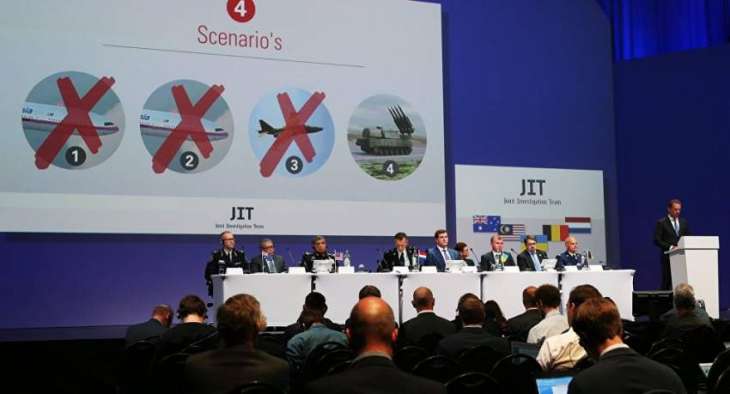Russia initially sent full, primary radar data on the 2014 crash of MH17 Boeing over Ukraine to the joint international investigation team (JIT), while ASTERIX format required by the Netherlands is a secondary, reworked format, Russian Deputy Prosecutor General Nikolay Vinnichenko told RIA Novosti
MOSCOW (Pakistan Point News / Sputnik - 21st January, 2019) Russia initially sent full, Primary radar data on the 2014 crash of MH17 Boeing over Ukraine to the joint international investigation team (JIT), while ASTERIX format required by the Netherlands is a secondary, reworked format, Russian Deputy Prosecutor General Nikolay Vinnichenko told RIA Novosti.
In 2017, the Netherlands said it had received additional radar data from Russia. The Hague explained that the radar data it received earlier had been transferred in a format that was not compatible with ASTERIX. According to the office of the Russian Prosecutor General, the analysis of the radar data sent to the Netherlands refuted the JIT idea for the location from which the missile that hit the Boeing had been launched.
"In October 2016, Russia passed on primary radar data to the investigators. The data was transferred in full ... The Dutch side confirmed the receipt of the data but only a few months later stated that it had some problems deciphering it, requesting that it be provided in a different format � the so-called ASTERIX format," Vinnichenko said.
An official request on the issue arrived even later, the deputy prosecutor general added.
"Even though ASTERIX is no longer considered to be primary data � since it represents processed, or secondary, data, which is much less detailed � and the Netherlands could have converted the data on its own, Russia met the investigators halfway by converting the data into the ASTERIX format and resending it to the Dutch side," Vinnichenko said.
On July 17, 2014, a Malaysia Airlines Boeing 777 flying from Amsterdam to Kuala Lumpur crashed near the city of Donetsk. All 298 passengers and crew on board the aircraft died. Kiev accused local militias of downing the aircraft, while they said that had no weapons capable of downing such a plane.
The interim conclusions presented by the JIT, which does not include Russia, suggested that the plane had been downed by a Russian-made Buk missile originating with a military brigade stationed in the Russian city of Kursk. The JIT could not say what court and when would be given the results of the investigation.
According to Vinnichenko, Russia sent the JIT the data showing that the missile that hit the Boeing was a Ukrainian one, but this information was not taken into account.
The Russian Foreign Ministry has said that the JIT allegations of Russia's links to the crash were groundless and regrettable, adding that the investigation was biased and one-sided. Russian President Vladimir Putin has pointed out that Russia was not allowed to participate in the investigation of the crash, and Moscow can only recognize the results of the probe if it participates in it fully.
The Russian Defense Ministry has said that all missiles like the one, whose engine the Dutch investigative commission showed, were discarded after 2011.
Russian presidential spokesman Dmitry Peskov has repeatedly stressed that Russia strongly refutes accusations of having links to the crash of MH17 Boeing.




